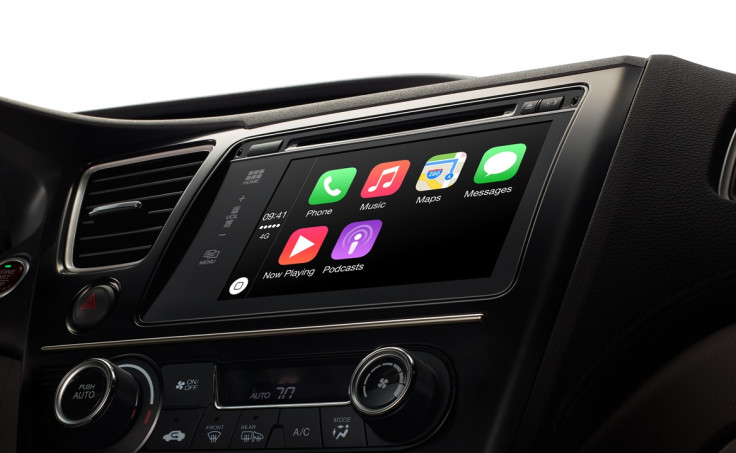Project Titan: Apple can't keep its car a secret for much longer

Apple likes secrecy. The first iPod, iPhone, iPad and Watch all sneaked under the radar and weren't seen in the flesh until Apple revealed them on stage. Newer revisions slipped through the net, but by and large, Apple loves keeping new products hidden and it's rather good at it.
The Apple car will be different. Even a company with $200bn (£130bn) in the bank can't shield the development of a car from prying eyes for much longer, especially if recent reports of a 2019 shipping date are to be believed. That gives Apple just four years to have its first car production-ready. Four years to plan, design, build and crash test a car from scratch, and four years to come up with a unique selling point and get a production line in motion.
This is a tough ask, even for Apple. Just look at the time scale of some recent high-profile car launches. Deliveries of the BMW i8 hybrid sports car began five years after its oldest relative, the Efficient Dynamics concept, was shown off. The i8 name appeared on a concept three years before the final car went on sale. Another example - Ford announced the new Mustang in October 2013, yet deliveries in the UK won't start until the autumn of 2015. Two years for one of the world's biggest car companies to deliver an update on a vehicle it has been producing for half a century
It will take a monumental effort if Apple is to deliver a production car four years from now.
New Project Titan details leak out
But a few details to leak out of the California company this week have shed light on how it plans to reach this lofty goal. For starters, the current team assigned to project Titan - the company's internal name for its car - has been given the green light to expand from 600 to 1,800 employees. More significantly, it is now understood that Apple's first car will not be 100% autonomous, like Google's self-driving car project.
Speaking to the Wall Street Journal, Apple insiders say it is likely the car will have some autonomous features, such as emergency braking, cruise control which can manage the accelerator and brakes on the motorway and in traffic, and a system for automatic lane-changing, activated by a flick of the indicator stalk. These features are all present and function (in countries where it is legal) on the latest Tesla Model S P85D.
Also in common with the Tesla is how Apple's car will be fully electric, as claimed by the same sources. It is believed that Apple is interested in using the chassis and platform of the all-electric BMW i3, and CEO Tim Cook has visited BMW's German factory to look at the i3's production line on a number of occasions.
Setting 1,800 of the best engineers and developers in Silicon Valley to work on a new car is all well and good, but soon the car will need to be tested. Whereas a new iPhone can be slipped into a pocket without anyone noticing, an unreleased car is more difficult to hide. Apple is looking to hire out the GoMentum Stadium, a huge outdoor test facility used for honing autonomous cars, but you can bet your bottom dollar that someone will take a photo before the end of its first visit.
Testing from Death Valley to the Arctic Circle
Then Apple will need to test the car on motorways and in different weather conditions. It must travel to the arctic and to Death Valley to make sure it works in all temperatures and on all road surfaces; it needs to be crashed by governing bodies such as Euro NCAP, thrown around racetracks to tune the chassis, brakes and suspension, and a whole fleet will need to cover thousands of test miles before appearing in any showroom.
Most car makers cover their new models in camoflage designed to make it difficult to see the finer details of the car's shape. Tesla has used masks to hide the front of the Model X as it drives around California, and doing so managed to keep the final design of its front lights hidden until an official photo was published just a week before its big reveal. Apple will probably take car camouflage to a whole new level, but the likelihood of us knowing (and seeing) nothing about the car ahead of its public debut remains unlikely.
Even taking the iPhone and Watch route of announcing a new product six months before launch gives Apple very little time to get the final car signed off and built in any meaningful numbers before going on sale. As we said earlier, Ford has spent two years announcing the new Mustang - will Apple want to take this route? Will it have a choice?
All we can say with any certainty is this; if it is destined for production and doesn't get canceled, then Apple can't keep its car a secret for much longer.
© Copyright IBTimes 2025. All rights reserved.






















